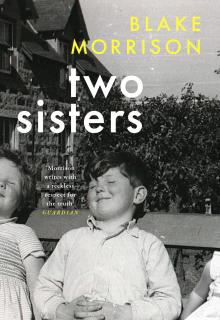My book review of 'Two Sisters' by Blake Morrison

I'm familiar with Blake Morrison as a writer because he lives in Suffolk but have to confess that I don't think I've actually read any of his work before. However, I do like a memoir so took up this latest instalment in his family records. If you remember, he has previously achieved plaudits for 'And When Did You Last See Your Father?' and 'Things My Mother Never Told Me'.
This book is released on the 30th anniversary of his memoir 'And When Did You Last See Your Father?' which was a bestseller and forged a new genre of confessional writing. He has been able to release it now, he says, because both sisters of whom he writes, and their parents, are dead and so he feels free to tell his story without fear of offending or intruding on their privacy.
Nevertheless I did feel slightly uneasy in reading about the ordinary, very personal details of everyday family life.
There is nothing outstanding or unusual for Morrison to report. The consequences of Morrison's father's behaviour were rather surprising in that he effectively managed to oversee two families in plain sight without being challenged, and Morrison's sister Gill was tragic in her alcohol dependency, loss of sight and sudden death. But overall this is a beautifully written account of nothing much happening.
Morrison describes his childhood, youth and then adulthood in delightful, nostalgic detail and interweaves this family story with his discoveries about other brother-sister relationships. There is of course William and Dorothy Wordsworth, Henry James and his sisters, but also Charles and Mary Lamb, who together wrote 'Tales from Shakespeare'. I was shocked to read that Mary Lamb killed their mother by stabbing her but spent only six weeks in a mental institution for her crime.
But there is a melancholy, regretful tone about Morrison's recollections. He acknowledges the shame, embarrassment and bewilderment of having a close family member with an addiction. There's a sense of British distance in his observations, of not getting involved. And consequently there's his feeling of guilt at not knowing what to do to help, and having not tried harder. It's poignant and haunting.





